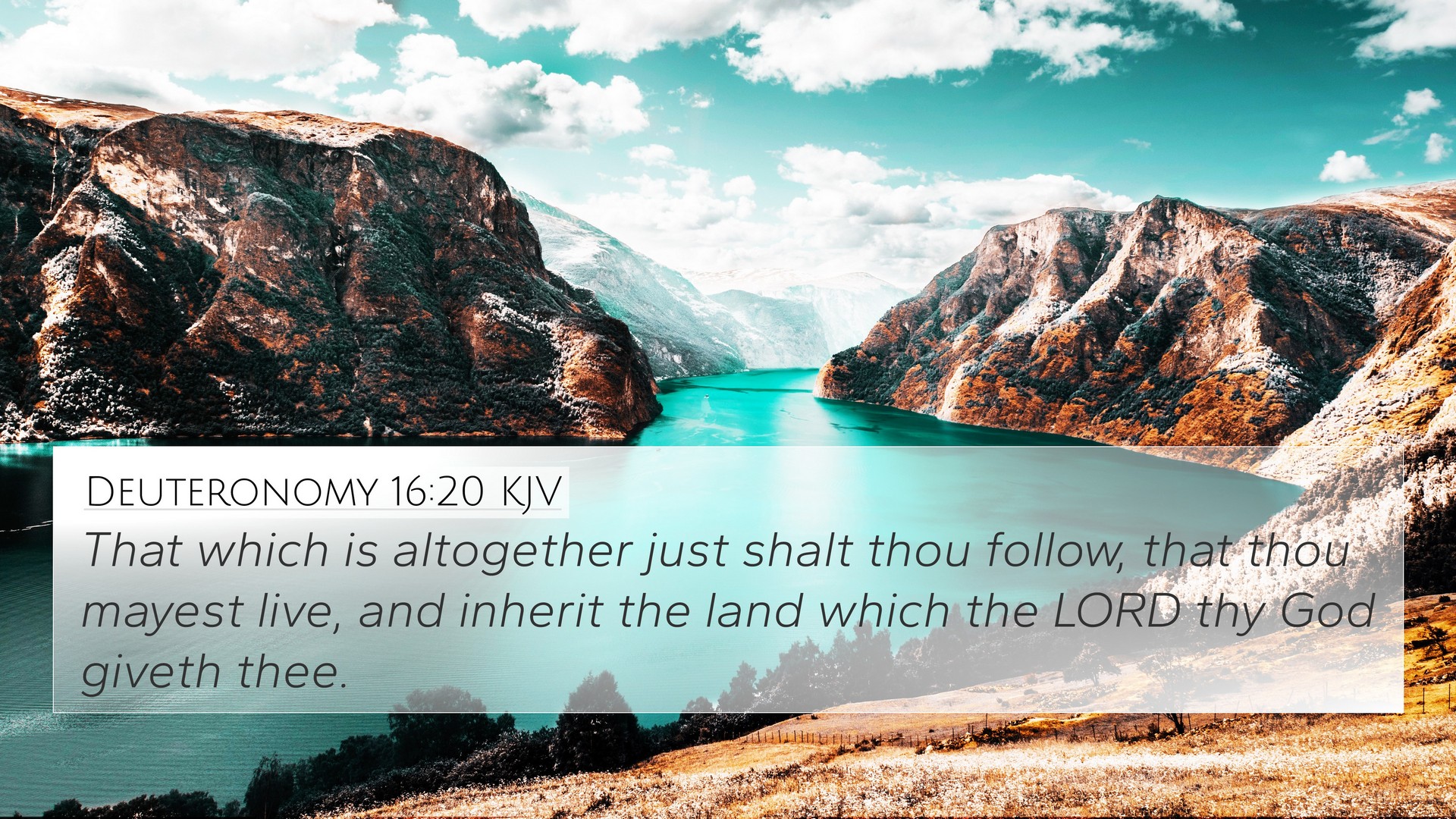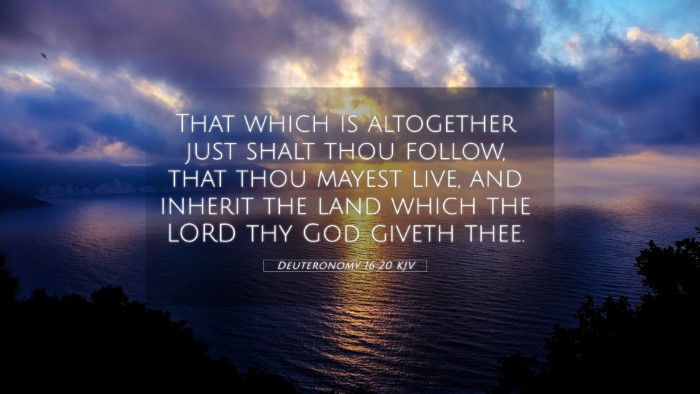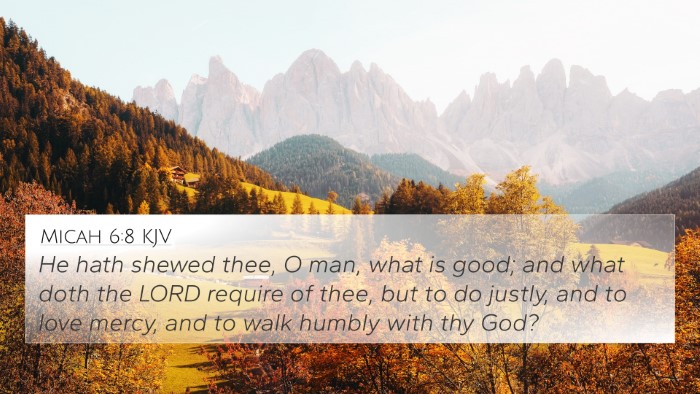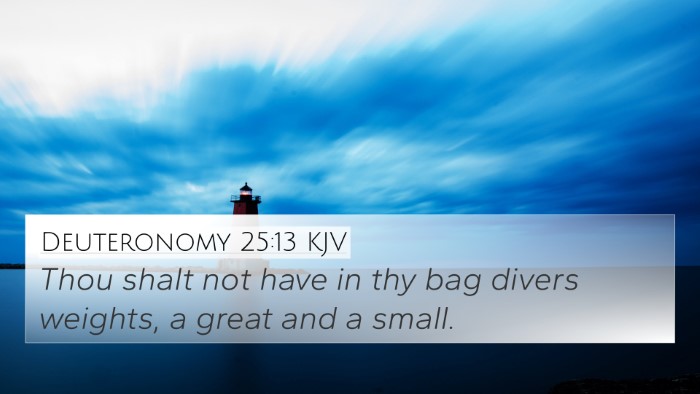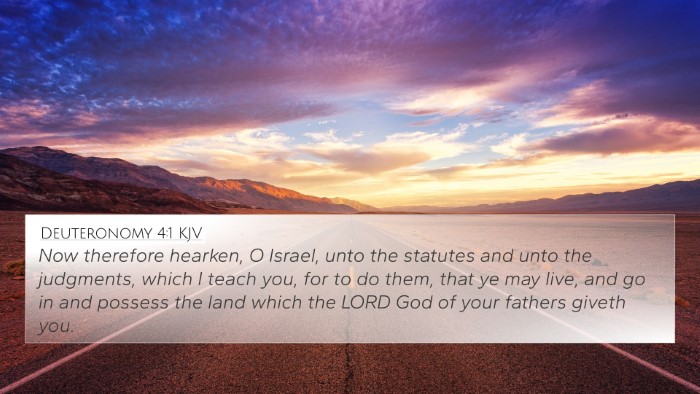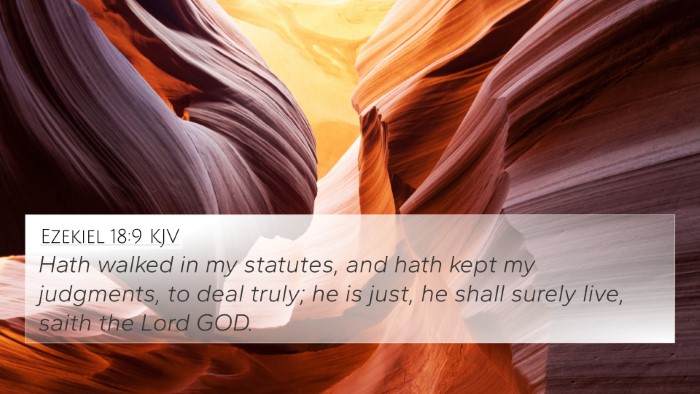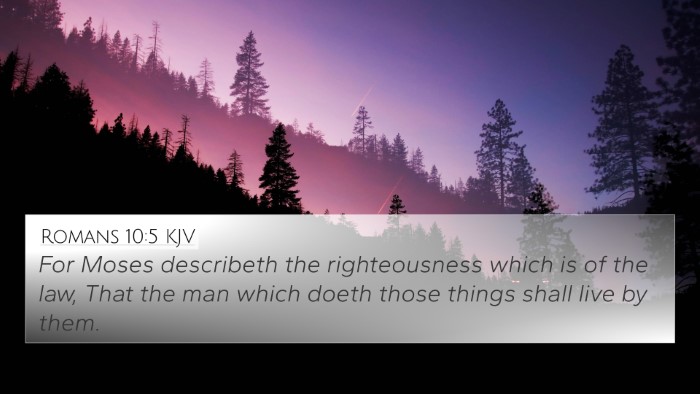Understanding Deuteronomy 16:20
"Follow justice and justice alone, so that you may live and possess the land the Lord your God is giving you." (NIV)
Meaning and Interpretation
Deuteronomy 16:20 emphasizes the importance of justice as a foundational principle in the life of God's people. The command to "follow justice" reflects the character of God and His desire for His people to reflect His righteousness in their dealings with one another.
Insights from Public Domain Commentaries
-
Matthew Henry:
Henry highlights that this verse calls for a sincere adherence to justice, motivating individuals to not only uphold the law but also to do so with integrity. He argues that the pursuit of justice will lead to a prosperous life in the Promised Land, emphasizing that obedience to God's commands results in blessings.
-
Albert Barnes:
Barnes provides insight into the centrality of justice within the covenant community. He interprets the command as indicative of the community's responsibility to ensure fairness and righteousness in civil affairs, warning against corruption and partiality, which would jeopardize their standing with God.
-
Adam Clarke:
Clarke stresses that justice is not a mere legalistic adherence but a holistic lifestyle characterized by equity and compassion. He notes how this principle connects to the broader biblical narrative of God’s redemptive plan, where justice interweaves with mercy and truth.
Cross-References and Connections
This verse connects with several other scriptures that reinforce the theme of justice and righteousness:
- Micah 6:8 - "He has shown you, O mortal, what is good. And what does the Lord require of you? To act justly and to love mercy and to walk humbly with your God."
- Proverbs 21:15 - "When justice is done, it brings joy to the righteous but terror to evildoers."
- Isaiah 1:17 - "Learn to do right; seek justice. Defend the oppressed. Take up the cause of the fatherless; plead the case of the widow."
- Psalm 82:3 - "Defend the weak and the fatherless; uphold the cause of the poor and the oppressed."
- Romans 13:1 - "Let everyone be subject to the governing authorities, for there is no authority except that which God has established."
- James 1:27 - "Religion that God our Father accepts as pure and faultless is this: to look after orphans and widows in their distress and to keep oneself from being polluted by the world."
- Isaiah 61:8 - "For I, the Lord, love justice; I hate robbery and wrongdoing. In my faithfulness I will reward my people and make an everlasting covenant with them."
Connecting Themes
The theme of justice resonates throughout the Bible, demonstrating the need for ethical standards in both personal and community life.
Deuteronomy 16:20 underscores an individual’s responsibility to uphold justice, a principle seen clearly in the teachings of Christ, who exemplified integrity and fairness.
Practical Applications
Followers of Christ can glean practical applications from this verse by committing to fairness in their interactions.
This might include advocating for social justice, participating in community service, and addressing issues of inequality, reflecting the heart of God in a broken world.
Cross-Referencing Bible Study Methods
For those interested in deeper study, employing tools and methods for cross-referencing can reveal rich connections in Scripture, allowing for comprehensive thematic explorations. Here are some techniques:
- Utilizing a Bible concordance to find keywords that link themes across various books.
- Engaging with a Bible cross-reference guide for insights into related verses.
- Exploring scriptural cross-referencing methods to build a thematic study.
- Employing a comprehensive Bible cross-reference system to uncover connections between Old and New Testament themes.
Conclusion
Deuteronomy 16:20 serves as a timeless reminder of God’s call to justice.
By understanding its implications, believers enrich their faith and contribute positively to their communities, reflecting God's character through just actions and relationships.
